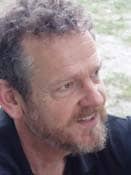Editor's Note: This article is part of an online symposium, "Does Seminary Have a Future?" hosted at Patheos this month. Read other perspectives here.
Has the seminary become an anachronism? Do seminaries educate for a bygone era? Or here's an even more frightening thought: when we do adequately prepare men and women for congregational leadership, what if the congregations we're training them for have ceased to be attractive for most Americans today?
What do Christian seminaries need to become in the 21st century? The question is fascinating because it's really asking: how is the church transforming, and what is it becoming?
Christian leaders are absolutely split on this question. Passions run high because the stakes are so high. Guess wrong, and your seminary (congregation, organization, denomination) shrinks in size, resources, and influence—or shuts its doors altogether. It's like we're watching the World Series, and no one really knows the outcome: will Christian institutions continue as before, with minor modifications? Are we entering an era of a post-institutional church? Should we seek to transform the institution from within, helping it to become something radically new?
Seminaries, along with other Christian organizations, are answering this live-or-die question in vastly different ways. If you judge us by our actions, it's as if we're giving four different kinds of advice:
- "Don't change; do what you've been doing. What we offer is really what the leaders of tomorrow's church need . . . whether they recognize it or not."
- "Get more conservative; concentrate on traditional doctrines and skills; seek to reclaim what we once were. It's this crazy modernism that's gotten us all in trouble, so turn back, turn back!"
- "Tweak existing programs to try to make them more appropriate for this rapidly changing new era. The main fields of theological education really are what people need for ministry: church history, systematic theology, biblical studies, theological ethics, homiletics. Keep the same basic model, but update it in various ways so that it is more relevant and less boring to today's students."
- "Scrap the old models and start over. Students who enter seminary this fall will minister from roughly 2015 to 2055, in a world unimaginably different from anything humans have known in the past. There may well be some portions of traditional theological education that remain relevant. But most theological education trains students for the church of the past, not the church of the future. We need to remake our seminaries so that they produce life-long learners and change agents—men and women who will find answers that we cannot yet even conceive, giving birth to styles of ministry beyond our imagination.
A Bold Experiment
This fourth option is the direction in which I hope to lead Claremont School of Theology (CST). In the next few months I think we will see the faculty and Board approving a set of radical changes that we're calling "the new CST." We're beginning with a series of transformations, similar to (3) above, in order to make the major building blocks of theological education more responsive to today's students and their needs. But we are also launching a completely new model. Our goal is to educate the men and women who will become leaders for the emerging forms of church.
A smaller number of these new leaders will stand in pulpits and read sermons to congregations, watching their parishioners holding bulletins and thumbing through hymnals. Many more will be "hosts" of discussions, spiritual directors, community organizers, and Christian participants in interfaith collaborations. Our goal is to provide them with the skills they need to succeed in these new forms of ministry.
Three things are crucial. Students need to be grounded in the Christian tradition: our sacred scriptures, history, theologies, and practices. They can't adapt ancient traditions to a new world unless they know them first. But we want also to educate our students to become "cultural creatives," men and women who are able to read contemporary trends in global culture more profoundly and accurately than others. Finally, we aim to form life-long learners and change agents—people who create positive change rather than resisting it. A cookie-cutter curriculum can't create transformative leaders; only experiential education can.
A Plea to Leaders of Seminaries
If all my fellow deans and presidents of Christian seminaries were gathered in a room, here's what I would say:
Don't assume that today's entering students are just like you. This new "Google Age" is producing men and women who think and communicate differently. Humanity won't go back; more and more of life will occur in so-called virtual communities—some local, some global. You can bemoan this brave new world, or you can prepare Christian leaders for it. Emerging forms of Christian community require a new palette of "best practices," and 21st-century seminaries must provide them.





